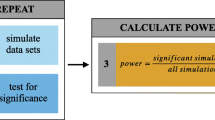Abstract
Results of empirical quality of life studies, undertaken hitherto, are subjectively influenced to a considerable extent by the researchers who try to measure the ‘quality of life’. In substantiation of this allegation it is shown on the basis of empirical data that the results are highly influenced, among others, (1) by the selection of indicators, (2) by the aggregation of indicators to one element, (3) by the weighting or non-weighting of the indicators, (4) by the indicator weigths given by different groups, (5) by employing different measurement techniques.
Remarkable progress in empirical measurement could be made by the employment of objective indicators which are weighted by different groups (e.g., citizens, experts, decision makers, etc.). This approach can be called a ‘weighted objective indicator’ approach.
In the second half of the article the proposal is made to measure infrastructure disparities both in physical and monetary terms. This permits a comprehensive assessment of the infrastructure's deficits and surplus on the level of indicators, subconcerns, and concerns.
Similar content being viewed by others
Bibliography
Abrams, M. and Hall, J.: 1971, Life-Satisfaction of the British People, London.
Allardt, E.: 1973, About Dimensions of Welfare, Helsinki.
Andrews, F. M. and Withey, St. B.: 1974, ‘Developing Measures of Perceived Life Quality: Results from Several National Surveys’, Social Indicators Research 1, 1.
Behrendt, J.: 1972, ‘The Worst American State’, in Lifestyle Magazine (Inc.), New York, November 1972, pp. 6–18.
Converse, Ph. E.: 1974, ‘Alienation from Public Institutions and Processes’, in B. Strumpel (ed.), Subjective Elements of Well-being, The OECD Social Indicator Programme, No. 2, pp. 141–152.
Coughlin, R. E.: 1973, ‘Attainment along Goal Dimensions in 101 Metropolitan Areas’, Journal of the American Institute of Planners 39, 413–425.
Drewnowski, J. and Scott, W.: 1966, The Level of Living Index, UNRISD Report No. 4, Geneva.
Economist, The: 1972, ‘More Green Grass’, in The Economist, January 22, 1972.
Flax, M. J.: 1972, A Study in Comparative Urban Indicators: Conditions in 18 Large Metropolitan Areas, The Urban Institute, Paper 1206–4, Washington D.C.
Gehrmann, F.: 1974a, The State of the Art in the Fields ‘Experiments in Quantifying the (Urban) Quality of Life’, Report prepared for the German Ministry of Regional Planning, Construction, and Urban Affairs, July 1974 (Original in German).
Gehrmann, F.: 1974b, The Definition of Fundamental Indicators for Employment and Services, Report Prepared for the Second Meeting of the OECD Working Group on Environmental Indicators, Paris, 3rd and 4th October 1974.
Gehrmann, F.: 1975, The Concept of ‘Quality of Life’ as a Tool for Social Planning, Report prepared for the Round-Table Meeting on ‘Quality of Life’, 14–15 November, 1975, Budapest (Hungary); organized by the Vienna Centre on behalf of Unesco.
Joyce, R. E.: 1973, ‘Systematic Measurement for the Quality of Urban Life, Prerequisite to Management’, in U.S. Environmental Protection Agency, The Quality of Life Concept. A Potential New Tool for Decision Makers, Washington D.C., pp. II, 226–243.
Koelle, H. H.: 1974, Entwurf eines zielgerichteten, gesamtgesellschaftlichen Simulations-modells (GESIM) zur Unterstützung der Ziel-, Aufgaben-und Finanzplanung, Zentrum Berlin für Zukunftsforschung, Bericht Nr. 18.
Liu, B. Ch.: 1973, The Quality of Life in the United States, 1970. Index Rating, and Statistics, Kansas City (Midwest Research Institute), November 1973.
Liu, B. Ch.: 1975, Quality of Life Indicators in U.S. Metropolitan Areas, 1970. A Comprehensive Assessment, Report Prepared for Washington Environment Research Center, U.S. Environmental Protection Agency, Washington D.C., May 1975.
Maruo, N.: 1973, ‘Measuring Welfare of the Japanese People-Including International Comparisons’, in International Quarterly for Asian Studies 4, 500–514.
Messinger, H. B. and Jarvis, G. K: 1974, International Quality of Life Comparisons, Ministry of State Urban Affairs Canada, Discussion Paper B74.8, Ottawa, May 1974.
Seashore, St. E.: 1974, ‘Job Satisfaction as an Indicator of the Quality of Employment’, Social Indicators Research 1, 135.
Smith, D. M.: 1973, The Geography of Social Well-being in the United States. An Introduction to Territorial Social Indicators, New York, etc. Statistisches Jahrbuch Deutscher Gemeinden, Vol. 57, 1970.
Strumpel, B. (ed.): 1974, Subjective Elements of Well-being, The OECD Social Indicator Programme, No. 2, Paris.
United Nations: 1975, Social Indicators, Current National and International Activities in the Fields of Social indicators and Social Reporting; Report to the Secretary-General (UN/E/CN, 5/518, 2 January, 1975).
Wilson, J. O.: 1970, Quality of Life in the United States. An Excursion into the New Frontier of Socio-economic Indicators, Kansas City (Midwest Research Institute).
Withey, St. B.: 1974, ‘Values and Social Change’, in B., Strumpel (ed.), Subjective Elements of Well-being, The OECD Social Indicator Programme, No. 2, Paris, pp. 21–32.
Author information
Authors and Affiliations
Additional information
The author thanks Gerhild Framhein (European Coordination Centre for Resarch and Documentation in Social Sciences, Vienna, Austria) and Folker Schreiber (Ministry of Regional Planning, Construction, and Urban Affairs, Bonn, F.R.G.) for their critical comments.
Rights and permissions
About this article
Cite this article
Gehrmann, F. ‘Valid’ empirical measurement of quality of life?. Social Indicators Research 5, 73–109 (1978). https://doi.org/10.1007/BF00352922
Received:
Issue Date:
DOI: https://doi.org/10.1007/BF00352922




